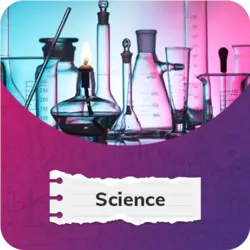
Science is a foundational subject that fuels curiosity, nurtures inquiry, and develops critical thinking skills in students from a young age. It encompasses a systematic study of the natural and physical world and is pivotal in developing analytical, observational, and problem-solving abilities. The subject helps learners understand their environment, make informed decisions, and appreciate the significance of scientific innovation in modern life. It is one of the key drivers of progress in society and serves as the base for numerous disciplines, from medicine to engineering to environmental studies.
Science comprises three primary domains:
In addition to content knowledge, Science education emphasizes the scientific method, experimentation, data interpretation, and ethical considerations in scientific research. It also introduces learners to the importance of safety protocols in laboratories, research integrity, and collaboration.
Early Grades (1–5):
In the early grades, Science is introduced through exploration, play, and observation. Students engage in activities that involve plants, animals, weather, simple machines, magnets, and the human body. Emphasis is placed on inquiry-based learning, where students observe phenomena, ask questions, and perform simple experiments. Tools like charts, flashcards, digital simulations, models, and visual aids help in concept visualization. At this stage, storytelling and experiential learning are often used to explain scientific ideas in a fun and engaging manner. Students may conduct activities like observing germination, mixing substances, identifying parts of the body, or building basic machines.
Middle Grades (6–8):
During middle school, Science becomes more structured and disciplinary. Students are introduced to basic concepts in biology (cells, tissues, ecosystems), physics (force, energy, motion), and chemistry (states of matter, atoms, mixtures). Laboratory work and project-based learning are integral, helping students apply theoretical knowledge. Students learn to form hypotheses, conduct fair tests, and analyze results. Topics such as weather systems, pollution, renewable energy, nutrition, acids and bases, and microorganisms are explored. Students may use microscopes, perform chemical tests, build circuits, and participate in science exhibitions. Emphasis is also laid on data collection, graphing, and using scientific terminology accurately.
Secondary Grades (9–12):
At this level, Science branches into specialized fields: Physics, Chemistry, and Biology. Students engage with more complex theories and conduct detailed experiments. Coursework includes genetics, chemical bonding, Newtonian mechanics, thermodynamics, electricity, environmental science, organic chemistry, cell biology, and electromagnetism. High school science often includes investigative projects, science fairs, and research reports, preparing students for advanced studies in medicine, engineering, research, data science, and more. Students are expected to write lab reports, critique experimental design, understand the history of scientific discoveries, and connect classroom knowledge to global challenges such as climate change, disease outbreaks, and technological advancement.
Science education prepares students for real-world challenges by promoting logical thinking, innovation, and technological literacy. Whether in healthcare, environmental management, space exploration, climate studies, agriculture, pharmaceuticals, or consumer technology, scientific knowledge is crucial. It also strengthens math skills, promotes computational thinking, and integrates well with geography, technology, design, and social sciences. Students gain the ability to evaluate news reports, understand medical information, make informed health and safety choices, and contribute meaningfully to societal debates on ethics, technology, and the environment.
Assessment in Science includes written examinations, lab reports, multiple-choice tests, diagrams, science journals, oral presentations, and model-making. Formative assessments like quizzes, group projects, and class participation are combined with summative tests to provide a holistic evaluation. In international curricula, students may also complete internal assessments, practical experiments, field studies, science portfolios, or extended essays. Evaluation is aimed not only at factual recall but also at procedural understanding, critical thinking, data analysis, and scientific communication.